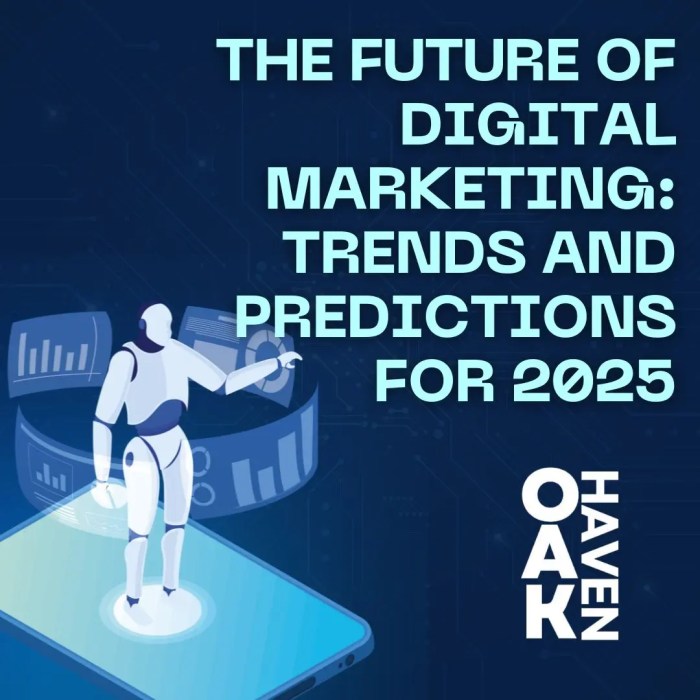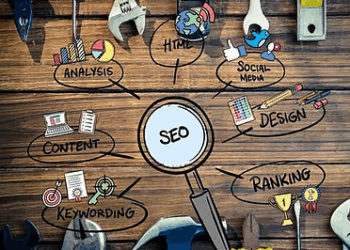
As we delve into the realm of Digilife Global Technology Trends 2025, a world of innovation and transformation unfolds before us. Brace yourself for a journey through the technological landscape of the future, where groundbreaking advancements and paradigm shifts await.
Let’s uncover the pivotal aspects of global technology trends that are set to redefine the way we interact with the digital world in the coming years.
Overview of Digilife Global Technology Trends 2025
Understanding global technology trends is crucial in today’s fast-paced world as it allows businesses and individuals to stay ahead of the curve, adapt to new innovations, and capitalize on opportunities for growth and development.
‘Digilife’ plays a significant role in shaping technology trends by focusing on the integration of digital solutions into everyday life, revolutionizing how we interact with technology and enhancing our overall quality of life.
Key Areas of Technology Evolution by 2025
- Artificial Intelligence (AI) and Machine Learning: AI is expected to continue advancing, enabling more personalized experiences, automation of tasks, and improved decision-making processes.
- Internet of Things (IoT): The IoT ecosystem is projected to expand, connecting more devices and systems to create a more interconnected and efficient environment.
- Cybersecurity: With the increase in digital threats, cybersecurity measures are anticipated to evolve to protect data and privacy effectively.
- 5G Technology: The rollout of 5G networks will revolutionize connectivity, offering faster speeds, lower latency, and enabling new applications like autonomous vehicles and smart cities.
- Augmented Reality (AR) and Virtual Reality (VR): AR and VR technologies are poised to transform industries such as gaming, healthcare, education, and retail by providing immersive experiences.
Emerging Technologies in 2025
In 2025, several emerging technologies are expected to dominate various industries, revolutionizing the way we live and work. These technologies hold the potential to reshape our world significantly, offering both benefits and challenges as they become more integrated into our daily lives.
1. Artificial Intelligence (AI)
AI is set to continue its rapid advancement in 2025, with applications ranging from autonomous vehicles to personalized healthcare. The impact of AI on industries like healthcare, finance, and manufacturing is expected to be profound, streamlining processes, improving efficiency, and driving innovation.
2. Internet of Things (IoT)
The IoT ecosystem is projected to expand further in 2025, connecting devices and systems to enable seamless communication and automation. Industries such as smart homes, transportation, and agriculture stand to benefit from IoT technologies, enhancing productivity and optimizing resource utilization.
3. 5G Connectivity
The widespread adoption of 5G networks in 2025 will revolutionize communication and connectivity, enabling faster data transfer speeds and lower latency. Industries such as telecommunications, entertainment, and e-commerce will leverage 5G technology to deliver enhanced services and immersive experiences to customers.
4. Blockchain
Blockchain technology is expected to gain more traction in 2025, offering secure and transparent digital transactions across various sectors. Industries like finance, supply chain management, and healthcare will utilize blockchain for enhanced security, traceability, and efficiency in their operations.
5. Quantum Computing
Quantum computing has the potential to revolutionize data processing and analysis in 2025, enabling complex calculations at unprecedented speeds. Industries such as cybersecurity, drug discovery, and weather forecasting will benefit from the computational power of quantum systems, driving breakthroughs in research and development.
6. Augmented Reality (AR) and Virtual Reality (VR)
AR and VR technologies are expected to see widespread adoption in 2025, transforming the way we interact with digital information and immersive experiences. Industries like education, gaming, and retail will leverage AR and VR to enhance customer engagement, training programs, and product visualization.
7. Edge Computing
Edge computing will play a vital role in processing data closer to the source in 2025, reducing latency and improving real-time decision-making. Industries such as healthcare, manufacturing, and smart cities will benefit from edge computing by enabling faster data analysis and response times for critical applications.
8. Autonomous Machines
Autonomous machines, including drones, robots, and self-driving vehicles, will continue to evolve in 2025, transforming industries like logistics, agriculture, and construction. The deployment of autonomous machines will increase efficiency, safety, and productivity in various sectors, leading to new opportunities for innovation and growth.
Sustainability and Technology
Technology trends in 2025 are playing a crucial role in advancing sustainability efforts worldwide. From renewable energy solutions to waste reduction techniques, innovative technologies are reshaping the way we interact with the environment and addressing pressing environmental challenges.
Innovative Sustainable Technologies
- Smart Grid Systems: These advanced systems optimize energy distribution, reduce waste, and enable better integration of renewable energy sources, leading to a more sustainable energy ecosystem.
- Vertical Farming: Vertical farming techniques maximize space efficiency, reduce water usage, and minimize transportation emissions, offering a sustainable solution to food production in urban areas.
- Carbon Capture and Storage (CCS): CCS technologies capture carbon dioxide emissions from industrial processes and store them underground, preventing greenhouse gas emissions and mitigating climate change.
Role of Technology in Addressing Environmental Challenges
- Remote Sensing and Monitoring: Satellite technologies and IoT devices enable real-time monitoring of environmental changes, helping in the early detection of natural disasters and facilitating better resource management.
- Circular Economy Platforms: Digital platforms are promoting the reuse, repair, and recycling of products, contributing to a circular economy model that minimizes waste and conserves resources.
- Blockchain for Supply Chain Transparency: Blockchain technology enhances supply chain transparency by tracking the origins of products, ensuring ethical sourcing practices, and reducing environmental impact through sustainable sourcing.
Data Privacy and Security
In today’s digital age, where technology plays a significant role in our daily lives, the importance of data privacy and security cannot be overstated. As advancements in technology continue to evolve, so do the measures in place to safeguard personal information and mitigate potential risks.
Advancements in Data Privacy and Security
With the increasing use of artificial intelligence, machine learning, and big data analytics, the need for robust data privacy and security measures has become paramount. Companies are now implementing encryption techniques, multi-factor authentication, and advanced firewalls to protect sensitive data from cyber threats.
Importance of Safeguarding Personal Data
Personal data is a valuable asset that, if compromised, can lead to identity theft, financial fraud, and privacy violations. Safeguarding personal information not only protects individuals but also builds trust between consumers and businesses. Transparency in data collection practices and compliance with data protection regulations are essential to maintaining a secure digital environment.
Risks and Vulnerabilities
The increased reliance on technology exposes individuals to various risks and vulnerabilities, such as data breaches, phishing attacks, and malware infections. Hackers are constantly developing new tactics to exploit weaknesses in security systems, making it crucial for both individuals and organizations to stay vigilant and proactive in safeguarding data.
Impact on Workforce and Education

The rapid advancements in technology trends in 2025 are significantly reshaping the workforce and job market, bringing about both challenges and opportunities for individuals and organizations alike. As automation and artificial intelligence become more prevalent, the implications on jobs and required skills are becoming increasingly apparent.
In this evolving landscape, the role of education is crucial in ensuring that individuals are equipped to adapt and thrive in the digital era.
Automation and Artificial Intelligence
- Automation is revolutionizing industries by streamlining processes and increasing efficiency, leading to the transformation of traditional job roles.
- Artificial intelligence is enabling machines to perform tasks that were once exclusive to humans, impacting jobs that involve repetitive or rule-based activities.
- Workers will need to upskill or reskill to remain competitive in the job market, focusing on roles that require creativity, critical thinking, and emotional intelligence.
Role of Education
- Education plays a vital role in preparing individuals for the changing demands of the workforce, emphasizing the importance of digital literacy and adaptability.
- Curricula need to evolve to incorporate emerging technologies and equip students with the skills needed to succeed in a technology-driven society.
- Lifelong learning is becoming essential, with continuous education and training opportunities ensuring that individuals stay relevant and agile in their careers.
Final Conclusion
In conclusion, the discussion on Digilife Global Technology Trends 2025 paints a vivid picture of the exciting possibilities and challenges that lie ahead. As we navigate through the evolving technological sphere, it is evident that embracing these trends will shape our future in ways we cannot yet imagine.
Question Bank
How can understanding global technology trends benefit individuals and businesses?
Understanding global technology trends can provide insights into upcoming innovations, helping individuals and businesses stay ahead of the curve and adapt to changing market demands.
What role does data privacy and security play in the context of Digilife Global Technology Trends 2025?
Data privacy and security are crucial considerations as technology advances, ensuring that personal information is protected from cyber threats and unauthorized access.
How are emerging technologies expected to impact the job market in 2025?
Emerging technologies like automation and AI may transform job roles, requiring individuals to acquire new skills to remain competitive in the evolving workforce.













